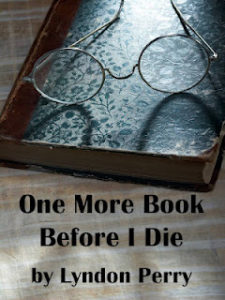Good News For Readers
In this new world of e-publishing, self-publishing, and the like, there is exciting news for readers: greater access to new and favorite authors.
Sports business owners know something about increasing the popularity of their franchise. If you want to build brand loyalty, then you need to allow fans to meet and greet their favorite players. Whether you pay extra to schmooze with the stars or stick around after the game for an autographed baseball, knowing you can ‘reach out and touch’ your favorite player is a thrilling experience. And a franchise that encourages that personal touch builds good will within a community, extends the fan base, and fosters long term interest in the home team.
Writers, too, want loyal fans and long term interest in their projects.
Often, writers forget that they are in business for themselves. Writers are “employing” agents, editors, and yes, even publishers to move their product to their fans, the readers of their books. They need to reach out to the ones who are spending their hard earned cash and build or maintain that loyal fan base. This new world of publishing and social media can help facilitate all this.
Now blockbuster authors typically needn’t worry about such things. As long as they don’t embarrass themselves too publicly, readers have come to expect that traditionally published authors are basically inaccessible to them. Readers will buy their books regardless. Their name brand has power in and of itself. Sadly, many readers have bought into the myth that legacy published authors are special. Don’t touch. Don’t approach. Admire from afar. Oooh.
That’s ridiculousness, of course. Writers and readers go together like an alien-human symbiot. We need each other. And here small press or self-published writers have realized they are at a big advantage over big-time traditionally published authors. They must interact with their fans if they want to earn enough to eat. This is an advantage, really. It provides a huge motivation for writers to interact with those who, fingers crossed, will buy their books.
 The “Indie” Advantage
The “Indie” Advantage
The new world of publishing has opened up amazing opportunities for reader/writer interaction.
- Accessibility – Fans can “meet” writers online and connect with their favorite authors on a more personal level.
- Feedback – Writers get energized when fans compliment, praise, and review their books.
- More Books Faster – Gone are the days when you had to wait a year or two between books in a favorite series. Fast writers (people who can pen 500 to 1000 words a day! yes, that’s considered fast) can release a novella or shorter book every month or so. This is great for fans and great for writers as it means more potential income.
What other advantages can you think of that social media and electronic publishing has brought about?
Tips to Fans
Of course, this unprecedented connectivity with writers is something to protect and should be handled with care. Here is some basic Miss Mannerly advice.
- Be Patient – Social media doesn’t mean instant response. Don’t get mad if a writer doesn’t tweet you back within 30 seconds. She’s writing!
- Be Positive – Have something beneficial (and substantive) to say.
- Be Polite – If you disagree with something on their blog, or point out a typo in their manuscript, do so with grace.
- Don’t Stalk – In other words, don’t stalk.
Can you think of other tips for readers when interacting with a writer?
Tips to Writers
If you’re a writer and you want loyal, long term fans, here are some ideas.
- Answer your dang emails. I’ll email other writers/publishers and they blow me off. There are just too many writers out there trying to build a fan base for this to happen. If I can’t “connect” with you, I’ll just move on. I don’t need to read your book.
- Respond to comments. You have a blog, don’t you? Then take time to read and reply.
- Update your blog. If you’re in the middle of a project, let people know about it. Many writers have progress bars in a sidebar so readers know how close they are to finishing the next novel. Fans love that. They want to know if a new book is on the way.
- Don’t over-promote. Write more, tweet less. Which can be one disadvantage to all this connectivity. More fan interaction may take away from writing time, which is why writers have readers in the first place. It’s a conundrum. I guess writers will just learn to deal with it.
What other tips would you suggest?
It is a brave new world of publishing out there. All the better for readers and writers alike, in my opinion.
– – – – –
 Lyndon Perry writes a variety of speculative fiction, from SF and fantasy to mystery and spiritual thriller. As a middle school Language Arts teacher, he encourages (okay, requires) his students to read at least 25 books during the school year and to write in their journals daily. He hopes to keep up with them!
Lyndon Perry writes a variety of speculative fiction, from SF and fantasy to mystery and spiritual thriller. As a middle school Language Arts teacher, he encourages (okay, requires) his students to read at least 25 books during the school year and to write in their journals daily. He hopes to keep up with them!
Perry is also the founding editor of Residential Aliens, a magazine of spiritually infused speculative fiction online at ResAliens.com. He is also the editor of Fear & Trembling Magazine, an online venue of spiritual horror. As the owner of ResAliens Press, his goal is to publish stories that, while not necessarily religious, are truthful to the human condition and touch on themes that are eternal. Visit Lyn at Residential Aliens, Fear and Tremblings Magazine, or his personal blog; friend him at Facebook or Goodreads, and follow him on Twitter.







































I recentally started a blog just for my novel in process, but it’s more of a self-prompting thing than a promotional thing.
The fact that you are accessible to those who might find your work enjoyable is the key. Best wishes on your novel in process.
Lyn, I’m glad you added “don’t over promote.” There are some writers who seem only to connect with others in order to promote whatever they’re selling, and I honestly cringe when I see their name come up.
That being said, there’s a “word of mouth” saying that claims buyers need to hear of a product seven times before it actually sticks, so I wonder, are some authors perhaps under promoting?
Becky
In the “other tips” category, I’d say for readers, Be honest. Not everything your favorite writer puts in print is groundbreaking or the best ever. Sometimes a story might be lacking in some area and it isn’t disloyalty to admit it. Especially when posting reviews in a public forum (like here at Spec Faith), it’s actually more helpful to give a balanced review. It makes others pay attention to the good things you say. Otherwise, they’re apt to dismiss them as fan rantings, paid critiques, or friend praises.
Becky
Good points, Becky. I buy into the philosophy that if you are truly writing and publishing on a regular basis, then that is promotion enough. I mean, sure post it once or twice, tweet it, but announce it and keep writing. One’s work is advertisement for the rest of one’s work (someone buys a book in a series and immediately goes and searches for the rest of the books in that same universe or with that same main character).
And I agree about posting reviews that are not simply 5 stars because you want to support the author or Christian fiction or whatever. Honest reviews are best. Now I don’t know yet whether (or how much) writers should respond to those reviews at Amazon, for example. There’s a comment section, but I don’t think I’d want to get in a debate about a review from a fan. It doesn’t ever look good for the writer, imo.